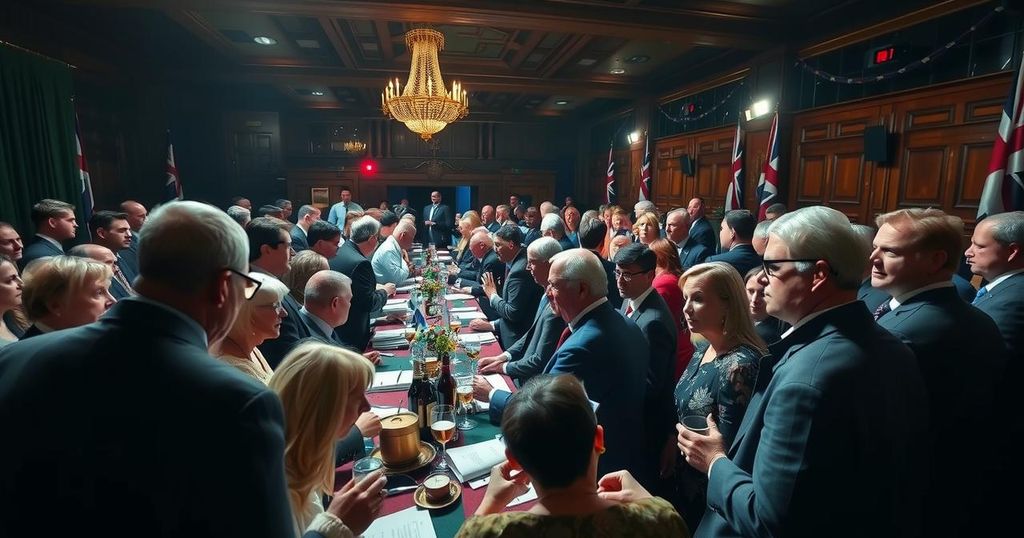Ireland’s Incumbent Parties Likely to Retain Power After Fractured Election

Ireland’s recent election indicates a potential continuation for the incumbent parties, Fine Gael and Fianna Fail, despite reduced support. Sinn Fein struggles for coalition possibilities due to historical ties, while controversial independent candidates emerge. Ongoing coalition talks face significant social issues at the forefront of the political discourse.
DUBLIN – Following a fractured national election, Ireland’s incumbent center-right parties, Fine Gael and Fianna Fail, appear poised to form a new government, albeit with diminished vote shares and the complexities of coalition negotiations ahead. As the ballot counting continues into the week, these parties are vying for securing the most seats in the 174-member Dail, which serves as the lower house of Ireland’s parliament. As Sinn Fein, which aspires to reunify the Republic of Ireland with Northern Ireland, struggles to find a coalition partner due to the historical baggage associated with its links to the Irish Republican Army, the political landscape remains tenuous.
Both outgoing Prime Minister Simon Harris from Fine Gael and Fianna Fail leader Micheál Martin won reelection in this climate, which was heavily influenced by pressing issues such as the ongoing housing crisis and immigration, marking significant themes throughout the three-week campaign. The unique system of proportional representation in Ireland complicates the election process, leading to potential delays in full results. “The people of Ireland have now spoken,” Harris remarked. “We now have to work out exactly what they have said, and that is going to take a little bit of time.”
Initial election results indicated that voters had diversified their choices significantly, with support evident for several smaller parties and independent candidates, implying that any forthcoming coalition would likely require inclusion of these groups. The historical dominance of Fine Gael and Fianna Fail in Irish politics, stemming from their origins in the 1920s civil war, has shaped their policies and relationship, despite being longtime rivals. Fine Gael candidate Paschal Donohoe underscored the key takeaway of the election, stating it was indicative of “one of the center holding.”
However, there were unexpected outcomes, such as the rise of independent candidates, notably the reputed organized crime figure Gerry “the Monk” Hutch, who garnered local support following his recent legal issues. Preliminary results suggest he may successfully secure a parliamentary seat in Dublin. The ongoing political dynamics reflect a potential shift in the voter sentiment amidst global trends, indicating that Ireland’s voters may maintain faith in their incumbent leaders.
Ireland’s recent parliamentary elections underscore the complexities of its political landscape, characterized by a fragmented voter base and shifting allegiances. The two dominant center-right parties, Fine Gael and Fianna Fail, have historically shaped Irish governance yet face challenges amidst rising opposition, especially from Sinn Fein. The electoral system in Ireland employs proportional representation, allowing for a broader spectrum of political representation, compelling parties to navigate coalition negotiations effectively, particularly in light of pressing social issues such as the housing crisis and immigration concerns.
In summary, Ireland’s incumbent parties are likely to retain power amid evolving voter preferences and emerging independent candidates. Despite facing challenges in coalition formation and declining vote shares, the traditional center-right parties may still navigate these complexities effectively. Ongoing discussions surrounding pressing societal concerns further highlight the significance of this election in shaping Ireland’s political future.
Original Source: www.local10.com








